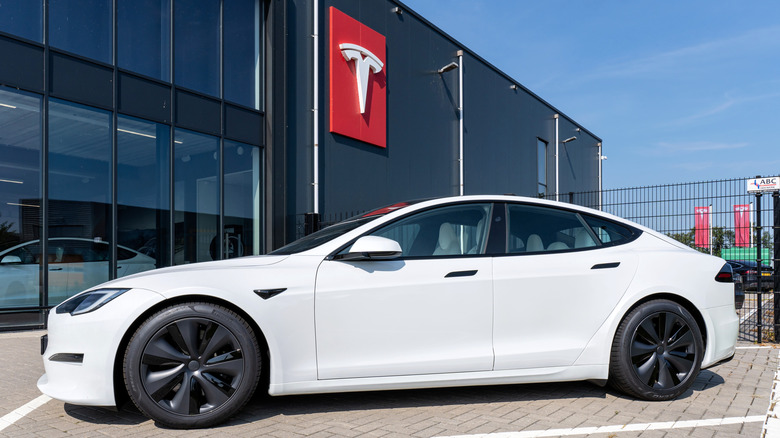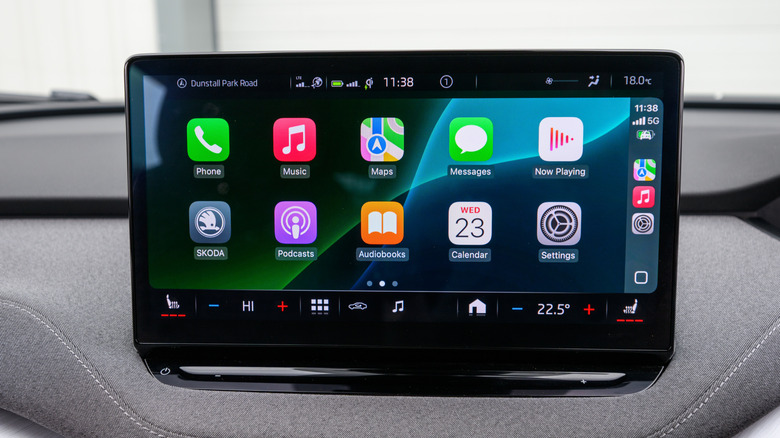Believe It Or Not, Tesla Now Wants To Add CarPlay To Its Vehicles
In a surprise about-face, Bloomberg reports that Tesla is working on an initiative to add CarPlay support to its vehicles. The move is arguably years overdue, as many Tesla owners have been clamoring for CarPlay integration for quite some time. Tesla, though, has been resistant to adding CarPlay, as it wanted to prioritize its own infotainment system. Somewhat ironically, Tesla was resisting CarPlay because it wanted to emulate Apple's strategy of controlling all aspects of the user experience.
Tesla's aversion to CarPlay, and Android Auto for that matter, has long been an anomaly in the industry. A recent report from Edison Research, for example, found that 83% of drivers use CarPlay or Android Auto in their primary vehicle. Meanwhile, other studies have found many buyers view a lack of CarPlay or Android Auto integration as a dealbreaker. Still, there's no indication that Tesla support for Android Auto is on the way anytime soon.
So, what's behind Tesla's seemingly sudden decision to embrace CarPlay? Well, it all comes down to increasing sales. Tesla sales have been impressively robust for years now, in large part due to the entry-level Model 3. Note that booming vehicle sales is why shares of the EV-maker have shot up by over 1,200% over the last 5 years. Tesla sales in 2025, however, have been lower than anticipated. In turn, Tesla seemingly believes that adding CarPlay is worth the extra boost in sales, even if it means giving up some control of the infotainment experience.
Incidentally, the report claims that Tesla will incorporate the basic version of CarPlay as opposed to CarPlay Ultra. Additionally, Tesla's implementation of CarPlay will be a display window "inside its broader interface." In other words, CarPlay won't take over the entire touchscreen as it typically does in other cars.
GM doubles down on its anti-CarPlay strategy
Tesla's sudden embrace of CarPlay comes as GM recently affirmed its decision to phase out CarPlay from its line of electric vehicles. GM's reasoning is that it can offer users a better experience with its own infotainment solution. During a recent podcast appearance, GM Chief Product Officer Sterling Anderson said that GM's offering provides users with a "more immersive environment that can do so many more things." At the same time, he criticized CarPlay for merely being the "equivalent of a phone mirroring application on a laptop in your car."
CarPlay is immensely popular, and if Tesla, given its somewhat contentious relationship with Apple, is embracing CarPlay, it's hard to imagine that GM is making the right call here. Indeed, GM is likely sacrificing vehicle sales so that it alone can control user data. That data can then be used to create subscription-based services for users via enhanced features. As a prime example, if a user wants to take full advantage of a Chevy Silverado's suite of infotainment features, GM is charging a subscription fee of $24.99 per month.
Time will tell, but it stands to reason that GM's decision will prove to be a bad business decision. Don't be terribly surprised if GM in a few years reverses course, just like Tesla, and brings back support for CarPlay.

